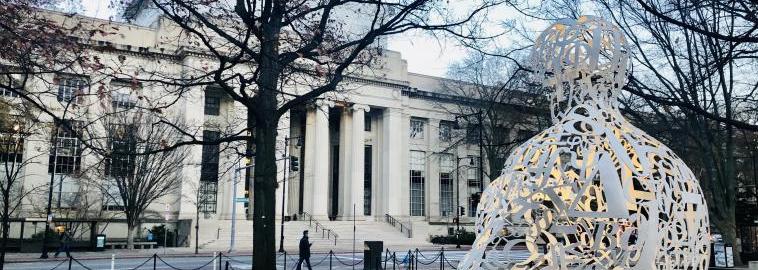Funding Sources for MIT Students and Groups to Support Diversity, Equity, and Inclusion (DEI) Activities and Programs
Students who are interested in advancing their DEI project ideas should start with MindHandHeart: The MindHandHeart Community Innovation Fund leverages the creativity of MIT students, staff, and faculty to strengthen the fabric of our community. The Fund awards grants of up to $10,000 to support a wide array of projects that advance diversity, equity, inclusion, and racial justice; increase awareness about mental health; build communities of support; promote life skills; and foster resiliency.
In addition, there are many other offices and programs at MIT that offer funds to advance student-led DEI efforts. These include:
AtHack(Assistive/Tech@MIT): Our mission is to make the world more accessible to everyone by building connections within our community and fostering collaborative efforts to create inclusive technology.
Baker Foundation: Our mission is to perpetuate the memory of Dean Everett Moore Baker, an outstanding educator, administrator and theologian. The Baker Foundation takes part in multi-year projects to improve particular aspects of the MIT community.
BAMIT Community Advancement Program and Fund (BCAP): Administered by the Office of Minority Education, the Black Alumni of MIT (BAMIT) Community Advancement Program and Fund supports student proposals for public-service projects that recognize the needs of our underserved communities of color, while leveraging the wealth of knowledge and experience of alumni.
Community Service Fund (CSF): MIT's Community Service Fund provides financial assistance to support MIT students, faculty, and staff volunteers in community service projects and encourages activities that will strengthen mutual understanding and cooperation between the Institute and the community.
COOP Grants for Public Service: The COOP offers funds to support MIT and Harvard students involved in new and ongoing public/community service programs and projects that benefit their campuses and the Cambridge and Boston area.
The Council for the Arts at MIT (CAMIT): CAMIT sponsors two grant programs to support arts projects among the MIT community: students, faculty, and staff are eligible to apply for funding from the Council’s Grants Committee, and undergraduate students and student organizations are also eligible to apply for Mini-Grant funding of up to $500. Additionally, the Council supports teaching and learning with funding for arts engagement for classes and partnerships with local arts institutions.
Graduate Student Council (GSC): GSC’s Diversity, Equity, and Inclusion Committee (DEI) works to encourage diversity, achieve, equity, and foster inclusion for all MIT community members regardless of their identity.
Graduate Student Experience Grants: The Office of Graduate Education (OGE) offers funding to graduate students and spouses for community-building programs and projects. In particular, creative projects related to diversity, equity, and inclusion are funded under the Innovative Projects category.
Hack for Inclusion: An annual, weekend-long hackathon to combat bias and create equitable solutions for real-world challenges. Using a design-thinking approach, teams work to find innovative solutions related to creating a culture of inclusion for potential users and customers. Prizes are awarded to the top four winning teams.
ICEO Office: Twice a year, the ICEO offers funding for events and programs that support our community in any or all of these themes; promoting a sense of belonging, enabling achievement, and expanding our campus composition. To learn more visit the ICEO Grants website.
LBGTQ+ Services: Supports LBGTQ+ groups with funding for programming and for professional development. Please check our website for information and which form to fill out. If you have any questions please email lgbt@mit.edu.
Margaret Cheney Room: Located in Room 3-310, the Cheney Room is a space dedicated to promoting community and empowering all students at MIT who experience gender-based systems of oppression. This includes (but is not limited to) self-identified women, transgender women, and non-binary individuals. Students who wish to hold events and workshops in the Cheney Room can apply for funding to support their efforts.
Office of Religious, Spiritual, and Ethical Life (ORSEL): ORSEL provides support and funding for programs related to religion, spirituality, diversity, and ethics.
PKG Center: The Priscilla King Gray Center for Public Service (PKG) is the epicenter of public service at MIT. PKG provides funding that allows students to take their learning beyond the classroom and into communities around the world through internships, fellowships, and public service projects.
SOLE Office (Student Organizations, Leadership, and Engagement): SOLE provides funding opportunities for student organizations to develop impactful programming while broadening their understanding and competencies in the areas of inclusivity and advocacy.
SPXCE/Intercultural Engagement: Offers funding to support cultural groups.
Undergraduate Association (UA): The UA Finance Board regularly funds ASA Funded Student Groups that have a majority of MIT undergraduate students.
Other Funding Sources
Arthur C. Smith Memorial Fund Student Life Grant
Davis Projects for Peace Fellowship



